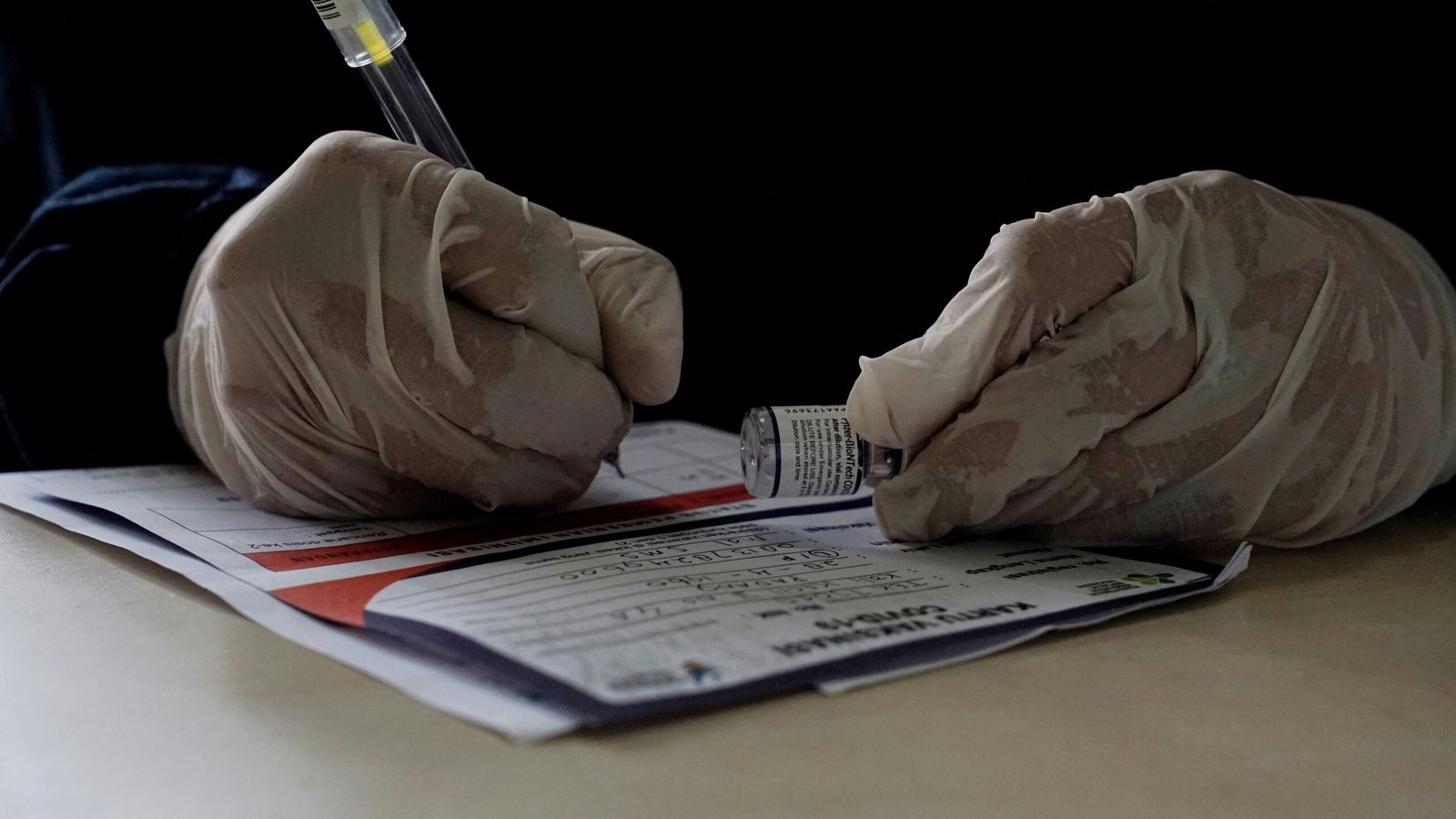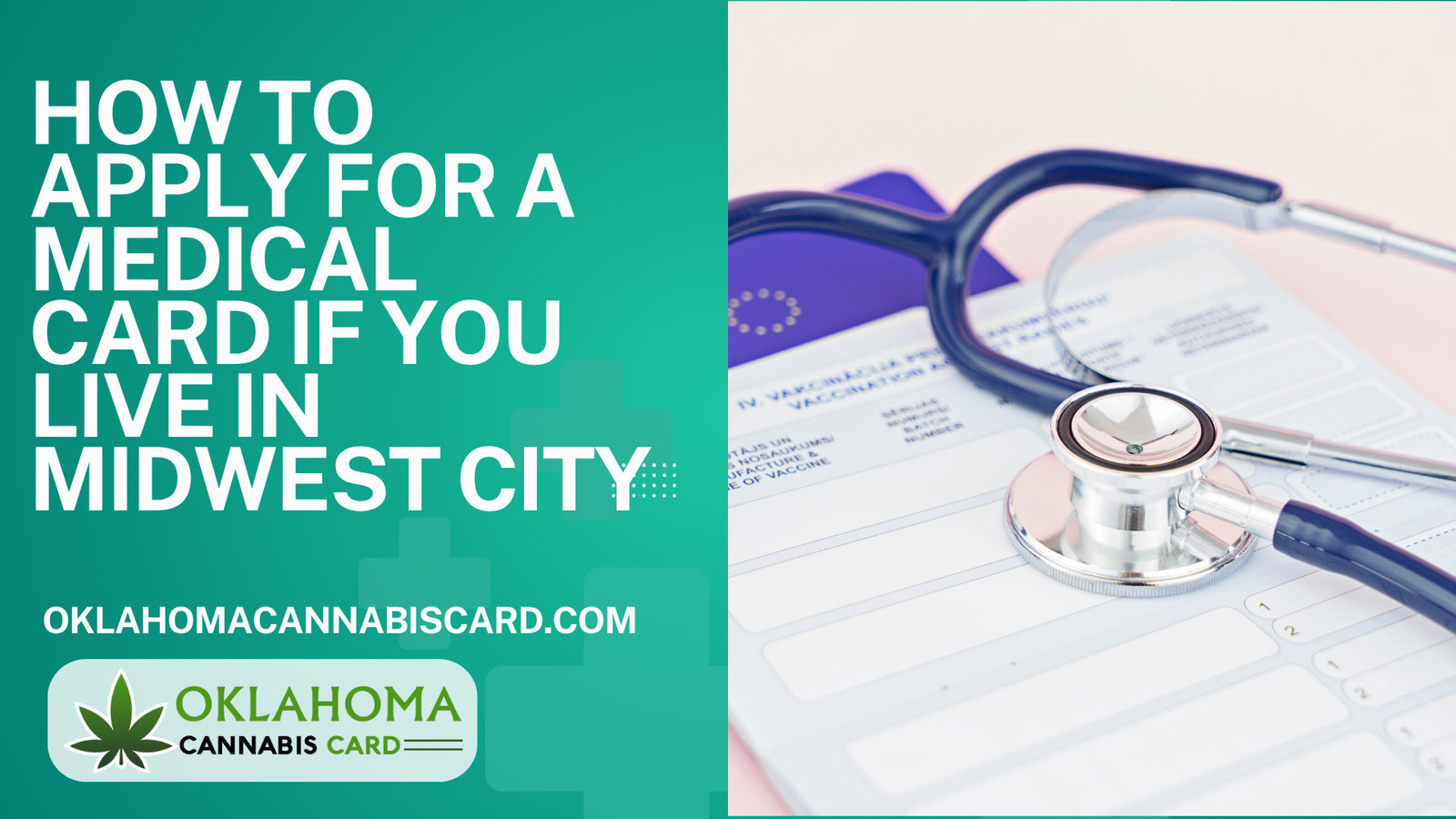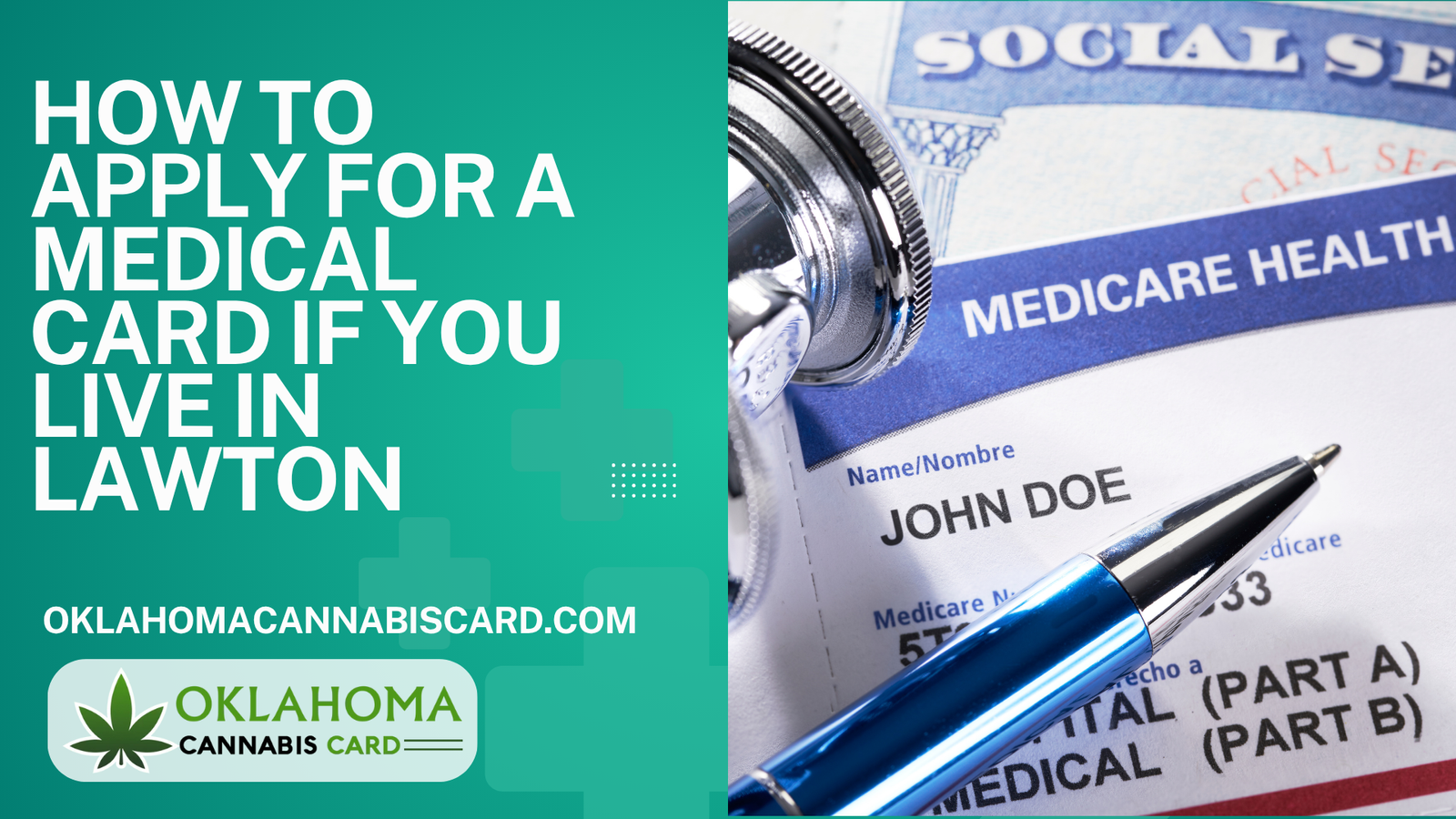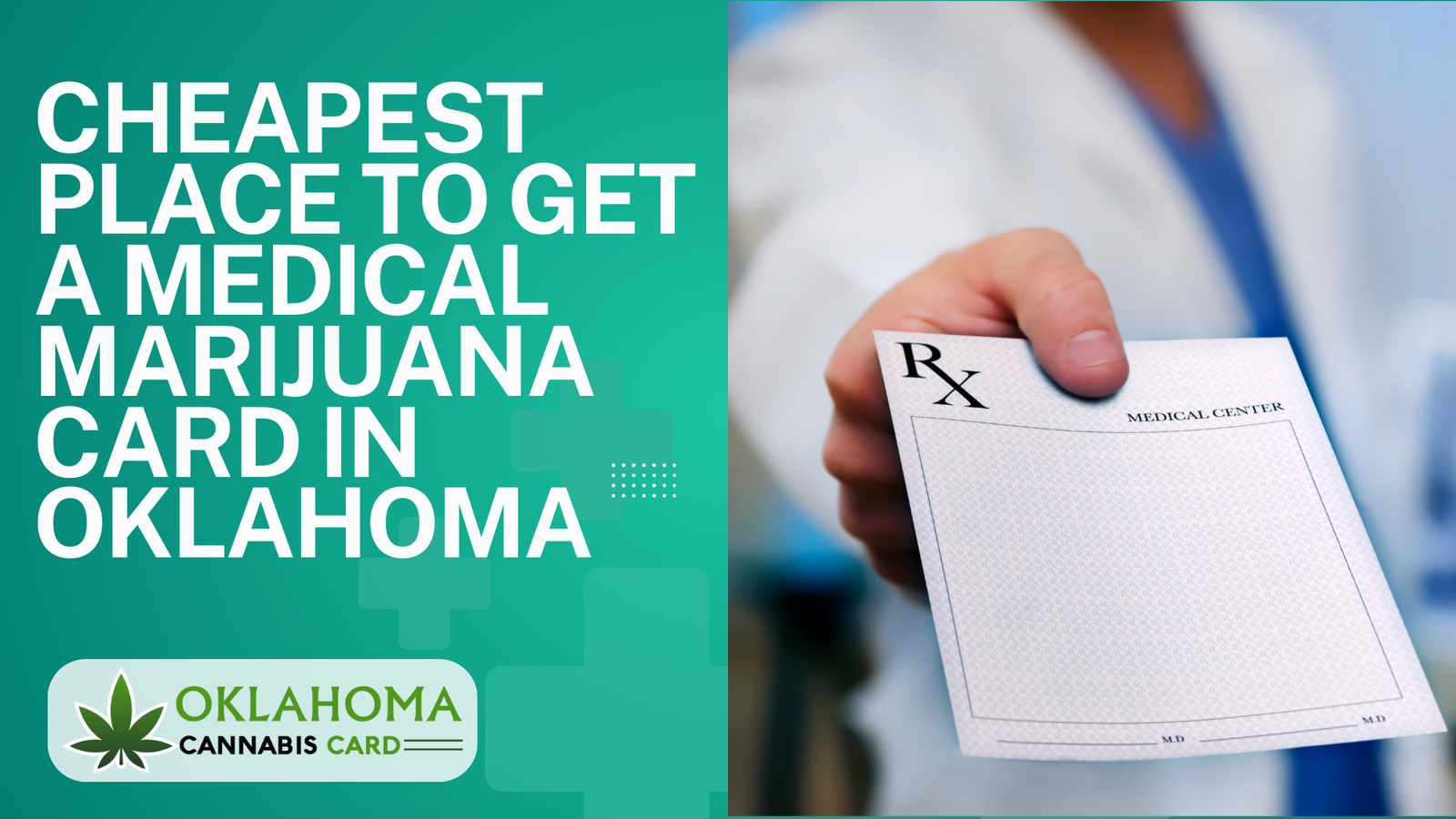
For many Oklahoma residents, medical marijuana has become a vital tool in managing chronic pain, anxiety, insomnia, and other health conditions. However, with the increasing use of medical cannabis, many patients are left wondering how this might affect their employment, particularly when it comes to workplace drug testing policies. Navigating the intersection between drug testing and holding a medical marijuana card can be tricky, especially for those new to the world of medical cannabis.
This article will explore the current drug testing policies in Oklahoma, how they relate to medical marijuana patients, and what you can do to protect yourself if you use cannabis for medical reasons. By the end of this guide, you’ll have a comprehensive understanding of your rights as an employee and a medical marijuana patient in Oklahoma.
This article is for Oklahoma Cannabis Card, which provides medical marijuana cards for $129, with renewals costing $99 every two years.
Table OF Content
- 1 The Legal Status of Medical Marijuana in Oklahoma
- 2 Drug Testing in Oklahoma: What You Need to Know
- 3 What Are Safety-Sensitive Positions?
- 4 What to Do if You’re a Medical Marijuana Patient Facing a Drug Test
- 5 The Role of Telemedicine in Accessing Medical Marijuana Cards
- 6 Conclusion
- 7 Frequently Asked Questions (FAQs)
- 8 1. Can I be fired for using medical marijuana in Oklahoma?
- 9 2. What should I do if I test positive on a drug test?
- 10 3. Can my employer still drug test me if I have a medical marijuana card?
- 11 4. Does federal law affect my right to use medical marijuana?
- 12 5. How can I get a medical marijuana card in Oklahoma?
The Legal Status of Medical Marijuana in Oklahoma
Oklahoma is considered one of the most progressive states when it comes to medical marijuana laws. Since the approval of State Question 788 in June 2018, adults over 18 with a qualifying medical condition can apply for a medical marijuana card through the Oklahoma Medical Marijuana Authority (OMMA). This allows them to legally purchase, possess, and use cannabis for medical purposes.
Qualifying conditions include:
- Chronic pain
- Anxiety
- Insomnia
- Cancer
- Severe nausea
- Spasticity
However, while Oklahoma’s medical marijuana program is extensive, it does not protect patients from every situation, particularly when it comes to employment drug testing. Understanding how drug testing works in Oklahoma and how it affects medical marijuana cardholders is essential for navigating your rights.
Drug Testing in Oklahoma: What You Need to Know
Oklahoma law allows employers to require drug testing of their employees, both as a condition of employment and as part of ongoing workplace policies. This is especially common in industries where safety is a priority, such as transportation, healthcare, and construction. Employers may test for various substances, including marijuana, even if you have a valid medical marijuana card.
The challenge for many medical marijuana patients is that cannabis can stay in your system for days, weeks, or even longer, depending on the frequency of use and your metabolism. This means that even if you are using cannabis legally for a medical condition, you could still test positive on a drug test, which could jeopardize your employment.
Oklahoma’s Medical Marijuana and Workplace Protection Act
Fortunately, Oklahoma does provide some legal protections for medical marijuana patients under the Oklahoma Medical Marijuana and Workplace Protection Act. This law, also known as the “Unity Bill,” was passed in 2019 and offers the following key protections for medical marijuana cardholders:
- Employers cannot refuse to hire, discipline, or fire an employee solely based on their status as a medical marijuana cardholder.
- Employers cannot take negative action against employees based on a positive drug test for marijuana, provided the employee is a valid medical marijuana cardholder.
- These protections do not apply to employees in “safety-sensitive” positions, such as those operating heavy machinery, working with hazardous materials, or jobs that directly affect public safety.
While this law provides significant protections, it’s important to note that it does not prevent employers from drug testing employees, nor does it prevent them from taking action if an employee is impaired at work. Additionally, federal law still classifies marijuana as a Schedule I controlled substance, which means that employers with federal contracts or those in federally regulated industries may still have to comply with stricter drug-free workplace policies.
What Are Safety-Sensitive Positions?
As mentioned earlier, the Oklahoma Medical Marijuana and Workplace Protection Act does not apply to employees in safety-sensitive positions. But what exactly qualifies as a safety-sensitive position?
According to Oklahoma law, safety-sensitive roles are those where an employee’s impairment could pose a significant risk of harm to themselves or others. Examples of safety-sensitive positions include:
- Operating heavy machinery or vehicles
- Handling hazardous materials
- Working in law enforcement or emergency services
- Performing tasks that affect the health and safety of patients in healthcare settings
If you work in a safety-sensitive position, your employer may legally prohibit you from using medical marijuana, even if you have a valid card. They may also impose stricter drug testing requirements to ensure you are not impaired while on the job.
Case Study: Medical Marijuana and a Safety-Sensitive Job
Consider the case of Jake, a 35-year-old construction worker in Oklahoma. Jake has been living with chronic pain for years due to a back injury, and after trying various treatments, he found that medical marijuana offered the best relief. He obtained a medical marijuana card and used cannabis to manage his pain when he wasn’t working. However, when Jake’s employer implemented a random drug testing policy, he was concerned about the potential consequences. Because Jake operates heavy machinery—considered a safety-sensitive role—his employer legally required him to abstain from using cannabis, despite his medical marijuana card. Jake eventually had to switch to a different pain management treatment to comply with workplace policies.
What to Do if You’re a Medical Marijuana Patient Facing a Drug Test
If you are a medical marijuana patient and your employer requires a drug test, it’s important to understand your rights and responsibilities. Here are some steps you can take to navigate this situation:
1. Disclose Your Medical Marijuana Status
While you are not legally obligated to disclose your medical marijuana status to your employer, it may be beneficial to do so, especially if you anticipate a drug test. By being upfront about your medical marijuana use, you can clarify that you are using cannabis legally and for medical reasons.
However, keep in mind that this disclosure does not guarantee that your employer will make accommodations, especially if you work in a safety-sensitive position. Additionally, some employers may still take action based on company policy, even if you are legally protected by the Unity Bill.
2. Know Your Rights Under Oklahoma Law
As a medical marijuana cardholder, you have protections under the Oklahoma Medical Marijuana and Workplace Protection Act. If your employer takes negative action against you solely because of your status as a medical marijuana patient, you may have legal recourse. It’s important to document any communication with your employer regarding your medical marijuana use and consult with an employment attorney if you believe your rights have been violated.
3. Be Aware of Federal Law
While Oklahoma’s laws offer protections for medical marijuana patients, federal law still considers marijuana illegal. This means that if you work for a federal employer or in a federally regulated industry, such as transportation or aviation, your employer may still enforce a zero-tolerance policy for marijuana use. In these cases, having a medical marijuana card may not protect you from disciplinary action.
The Role of Telemedicine in Accessing Medical Marijuana Cards
Oklahoma’s medical marijuana program is one of the most accessible in the country, thanks in part to telemedicine services like Oklahoma Cannabis Card. These platforms allow patients to undergo a medical evaluation and obtain a medical marijuana card entirely online, without needing to visit a doctor’s office in person.
This convenience is especially important for patients who may be nervous about discussing their medical conditions or who live in remote areas. By using telemedicine, patients can quickly and easily connect with certified doctors, who will evaluate their health and determine if they qualify for a medical marijuana card. Oklahoma Cannabis Card offers this service for $129, with renewals available for $99 every two years.
Conclusion
Medical marijuana has become a lifeline for many Oklahoma residents, offering relief from chronic pain, anxiety, and other health conditions. However, the intersection of drug testing policies and medical marijuana use remains a complex and evolving issue. While Oklahoma’s laws provide significant protections for medical marijuana patients, particularly under the Unity Bill, there are still many situations where a positive drug test could impact your employment, especially if you work in a safety-sensitive role.
It’s essential to understand your rights as a medical marijuana cardholder, communicate openly with your employer, and be aware of the limitations imposed by federal law. If you have questions about medical marijuana, drug testing policies, or how to obtain a medical marijuana card, Oklahoma Cannabis Card provides expert guidance and affordable access to medical evaluations. With the right information and support, you can make informed decisions about your health and employment.
Frequently Asked Questions (FAQs)
1. Can I be fired for using medical marijuana in Oklahoma?
Oklahoma law protects medical marijuana cardholders from being fired or disciplined solely for using medical cannabis. However, these protections do not apply if you work in a safety-sensitive position or if your employer has federal obligations that require a drug-free workplace.
2. What should I do if I test positive on a drug test?
If you test positive for marijuana and are a valid medical marijuana cardholder, you should inform your employer of your legal status. Under the Unity Bill, employers cannot take adverse action solely based on a positive drug test, unless you are in a safety-sensitive role or are impaired at work.
3. Can my employer still drug test me if I have a medical marijuana card?
Yes, employers in Oklahoma can still drug test employees, even if they have a medical marijuana card. However, they cannot fire or discipline you based solely on a positive test if you are not in a safety-sensitive position.
4. Does federal law affect my right to use medical marijuana?
Yes, federal law still classifies marijuana as a Schedule I controlled substance, which means that employers with federal contracts or those in federally regulated industries may still enforce stricter drug policies, including zero-tolerance for marijuana use.
5. How can I get a medical marijuana card in Oklahoma?
You can apply for a medical marijuana card through the Oklahoma Medical Marijuana Authority (OMMA) or by using telemedicine services like Oklahoma Cannabis Card. The cost is $129 for a new card, and renewals are $99 every two years.






